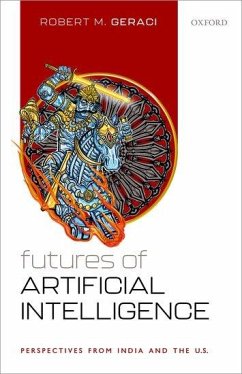Twenty-first century life is increasingly governed by artificial intelligence (AI) technologies such as machine learning, big data analysis, facial recognition, and robotics. For decades, an ideology of apocalyptic progress and cosmic transformation has accompanied the advancement of AI in the United States; that vision is intimately connected to transhumanism, the idea that humanity can transcend its limits, even mortality, using technology. Based on contributions from science and science fiction, advocates of such apocalyptic AI suggest that the world will soon see godlike machine intelligence and that human beings will upload their minds into immortal machine bodies. The arrival of this ideology in India raises questions about how global cultures can contribute to AI technology and our beliefs about AI. These beliefs have gained a foothold in Indian visions of AI, but they have not been accepted uncritically; rather, Indian scientists and futurists revise the transhumanist vision and illustrate how traditional Hindu values can add to the global perspective. By describing the arrival and reconfiguration of transhumanist ideas in India, this book reveals how the nexus of religion and technology contributes to public life and our modern self-understanding while suggesting that the apocalyptic approach to AI should be tempered by other visions. By tracing the movement of apocalyptic AI into India and exploring Indian efforts to redefine those transhumanist aspirations, Futures of Artificial Intelligence opens the door for rethinking our global approach to AI and advocates for technologies and visions of technology that advance human flourishing.
Hinweis: Dieser Artikel kann nur an eine deutsche Lieferadresse ausgeliefert werden.
Hinweis: Dieser Artikel kann nur an eine deutsche Lieferadresse ausgeliefert werden.








